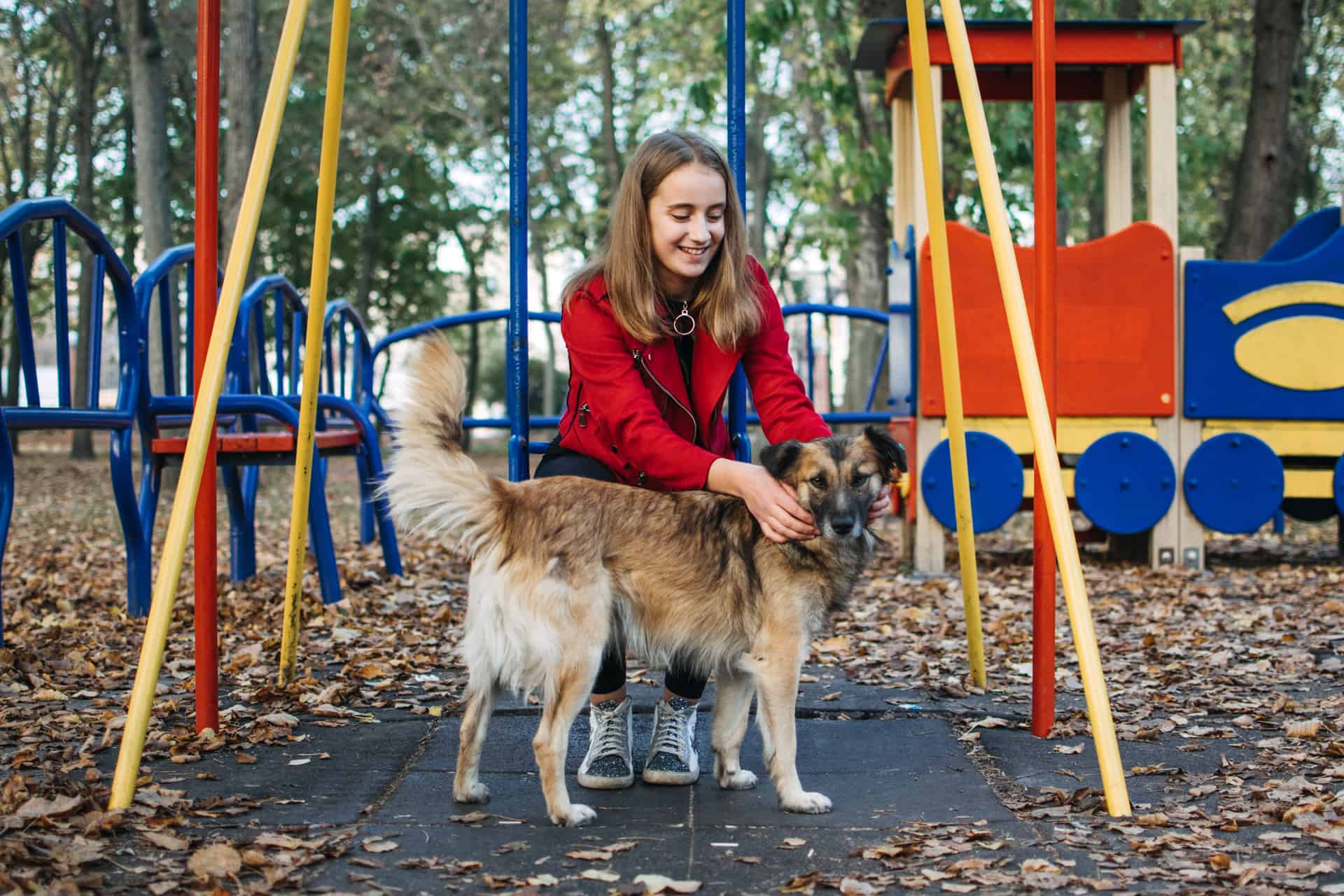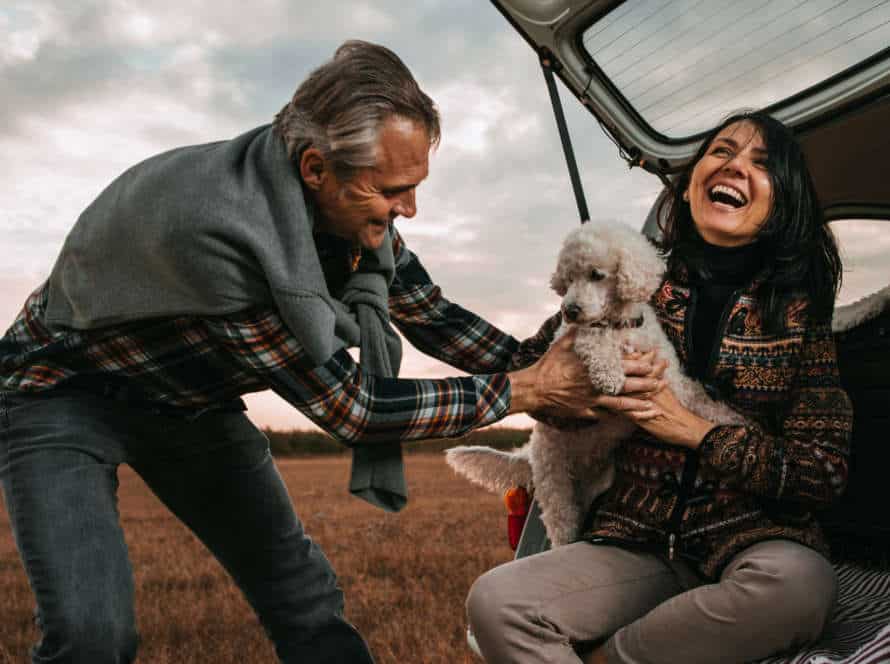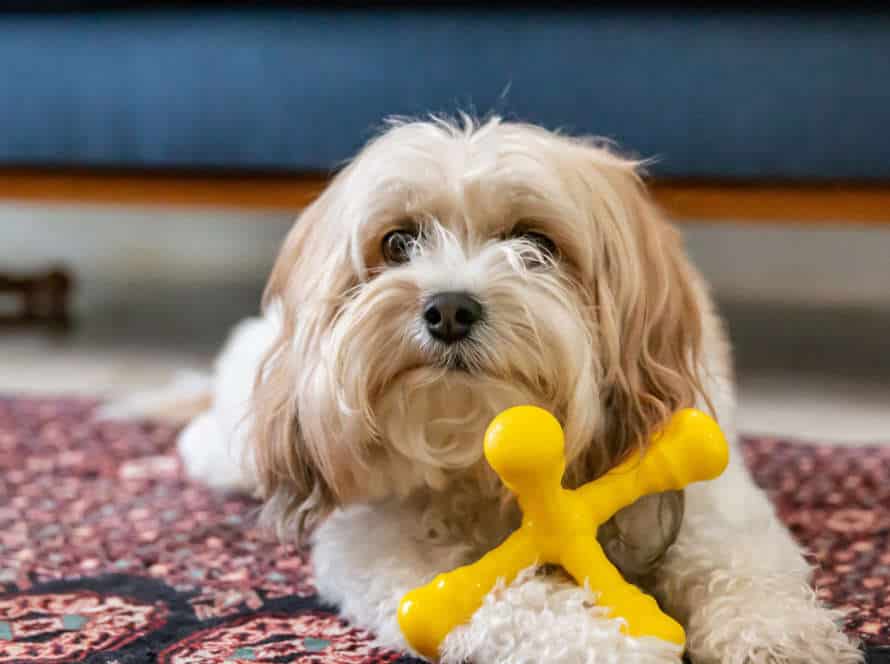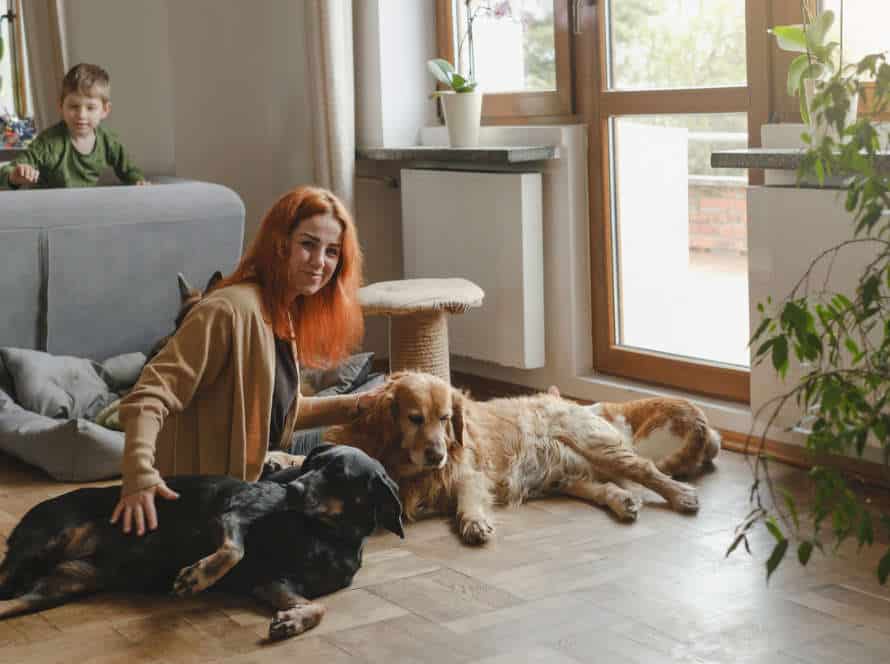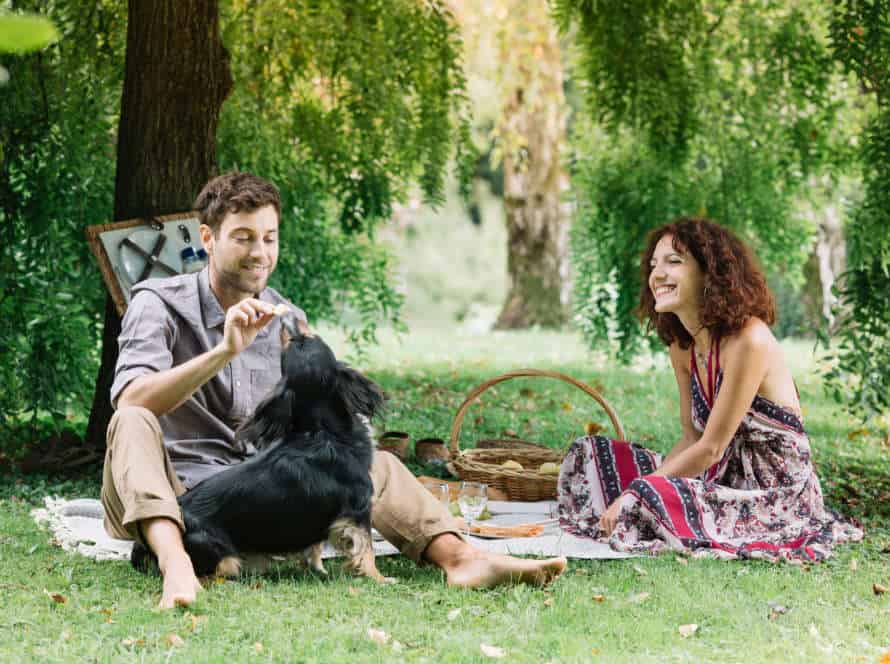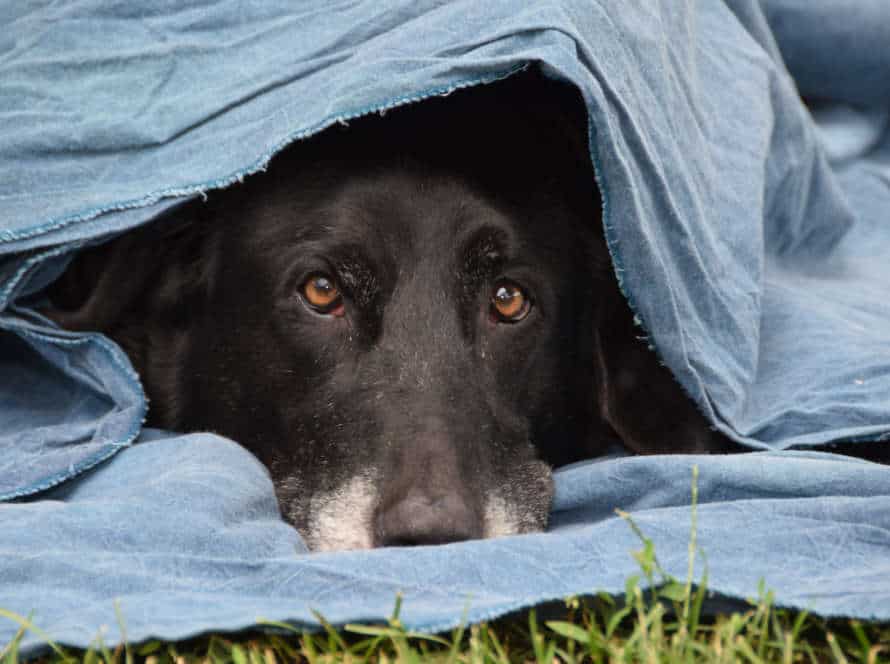Rescue Dog Socialization: Patience, Consistency, and Love
When it comes to socializing a rescue dog, three things are vital: patience, consistency and love. Here are some tips to help you:
- Introduce your pup to people, animals and new environments slowly. Stay near them.
- Reward good behaviour with treats and compliments. Don’t punish them if they’re worried or scared.
- Use positive reinforcement to teach basic commands and obedience.
- Have a regular routine e.g. feed and walk times.
- Give your dog enough exercise and stimulation. This prevents boredom and bad behaviour.
Remember, socializing a rescue dog takes time, effort and patience – but the love you’ll get in return will be priceless!
Understanding Rescue Dogs
Rescue dogs have special behaviors that can be tricky for people who don’t have experience with them. Knowing the socialization needs of a rescue dog is important to help them interact with people and other animals. Patience, consistency, and love are the keys to success.
Understand their needs and be patient, consistent and loving. That will help them become happy, healthy and loving members of the family.
Why Rescue Dog Socialization is Important
Rescue dog socialization is a must! It helps pups adapt to new places and get along with people and other animals. When they enter a new environment, they can be scared, confused and anxious.
Patience, consistency and love help dogs trust and feel comfortable in their new homes. This process includes introducing the pup to new people, places and experiences in a positive, controlled way.
Benefits of Rescue Dog Socialization include:
- Reducing fear and anxiety
- Adapting to new situations
- Building strong bonds
- Promoting good behavior and preventing aggression.
Taking time to socialize and train your rescue dog helps them overcome past traumas and become a happy, well-adjusted family member.
Unique Challenges of Socializing a Rescue Dog
When it comes to socializing a rescue pup, there are unique complications. These issues may include:
- Fear and Anxiety – Rescued doggos can have had trauma or neglect, which can cause them to be scared and anxious in social settings. Patience and a peaceful, loving atmosphere is key.
- Lack of Socialization – Some rescue dogs may not have had contact with other animals or people. This can make it hard to adjust and mingle with others.
- Trust Issues – Trust is essential for any pup, especially when they’ve had negative encounters in the past. Building trust is a process and needs time and patience.
- Medical/Behavioral Issues – These can need training, meds, or both.
The key to socializing a rescue pup is patience, consistency, and love. Creating a secure and cozy environment, with a daily routine, will help the pup to feel confident.
Common Behavioral Issues in Rescue Dogs
Rescue dogs may have behavioral problems due to their past experiences or lack of socialization. To help them, show patience, consistency, and love.
Common issues:
- Fearfulness: Create a secure and positive atmosphere. Introduce new people, objects, and experiences slowly.
- Separation anxiety: Start with short periods of being alone. Provide toys, a bed, or a crate to make them feel secure.
- Aggression: Seek professional help and don’t punish or yell at your dog.
- Leash pulling: Train with positive reinforcement, like treats or praise. Be patient and consistent.
Rescue dogs need more love and understanding. With time and consistency, they can become loving and happy companions.
Preparing Your Home and Family
Socializing a rescue pup is a labour of love. It ain’t always easy, though! To have a bond that lasts, you must prep your house and fam.
Patience, consistency and lots of love are the key steps to helping a rescue pup adjust.
Let’s see how we do this in more detail:
Creating a Safe and Comfortable Environment
Welcome a rescue pup? Here’s how!
- Get your home ready.
- Buy a crate, bed and toys.
- Establish routines to help them adjust. This includes feeding, exercise, and potty breaks.
- Patience is key as each pup is unique.
- Show love and affection to build trust.
With these tips, your pup will have a happy life.
Recruiting the Help of Friends and Family
When it comes to socializing your rescue pup, enlisting the help of family and friends is so important. Patience, consistency and love are essential. Here are some tips:
- Introduce your dog to people of all kinds – men, women, children, seniors – and have them over to play with your pup, offering treats and affection.
- Get your pals and family involved in training your pooch. Teach them basic commands – “sit,” “stay,” and “come.” This reinforces the training and creates a consistent setting for your pup.
- If your buddies have well-behaved dogs, have them over for play dates. This helps your pup learn how to socialize and feel comfortable around other dogs.
Socializing your rescue pup takes time and patience. But with the help of your loved ones, you can have a content and well-adjusted pup!
Preparing Children for a Rescue Dog
Adopting a rescue dog is a fulfilling experience for the family. It’s a must to prepare kids for the new furry friend. Involve the children in the prep process. Give age-suitable tasks like tidying up playthings, getting pet bowls, and putting pet beds in specific areas.
Encourage the kids to research the rescue dog. Talk about the duties of pet ownership. Stress on being consistent, loving, and patient when socializing and training the pet.
Teach the children to respect the pup’s space and signals. Supervise the interactions until you can rely on the kid and the pup.
By applying these tips, you’ll ensure a loving relationship between the pup and the children at home.
Socialization Techniques for Rescue Dogs
Socializing a rescue pup is essential for successful integration into your home. Patience, consistency, and positive reinforcement are key. Provide love, and your pup will be a happy, healthy family member! Here are some socialization techniques to make the transition smoother:
Exposing Your Dog to Different Scenarios
Exposing your rescue pup to various scenarios is an important part of socializing, which helps them be a great pet and handle life’s issues. Here’s what to do:
- Start off easy – Begin with basic and low-intensity situations, so as not to shock the dog.
- Positive rewards – Give treats, toys and love when they behave well to encourage good behavior.
- Consistency is key – With consistent positive experiences, the pup will trust and feel secure.
- Variety of situations – Your rescue dog must be exposed to different people, other dogs and new places.
- Patience and affection – Take time with your rescue pup and give lots of love to make them feel at ease.
Use these tips and your rescue dog will soon become a confident, lovable companion!
Slow and Steady Approach to Socialization
Socializing your new rescue pup needs a slow and steady approach. Have patience, consistency and love! Here are some tips you can use:
- Start with basic commands – sit, stay, come – and use treats and praise for good behavior.
- Introduce new people, pets and environments slowly. Use a leash and take it easy to make them feel safe. Never force them into a situation they don’t want.
- Take your rescue pup on walks to let them explore and gain confidence. Socializing with other dogs at a dog park or daycare is great for socialization.
- Remember it takes time and every pup is unique. With training and lots of love, your pup can be a happy family member!
Utilizing Positive Reinforcement Training Methods
Positive reinforcement training methods are a great tool for rehabilitating rescue dogs. This involves using praise, treats, and rewards to reinforce good behavior and fix bad behavior. Here are some tips:
- Patience is a must! Training and socializing a rescue dog takes time and patience, so don’t rush.
- Be consistent: Establish clear rules and routines and keep them.
- Use positive reinforcement: Treats, praises, and rewards for positive behaviors like sitting and coming when called.
- Be gentle and loving: Rescued dogs may have gone through trauma or abuse, so treat them with gentleness, love, and understanding. Build trust and affection with your pet over time and show that they are safe and cared for.
Positive reinforcement will be effective when it comes to socializing and rehabilitating a rescue dog with the right approach and patience.
Common Socialization Challenges and Solutions
Socializing a rescue pup can be tough! It needs patience, consistency and lots of love. Some rescue dogs have had challenging backgrounds, e.g. abuse or neglect – this might show in their behavior, like barking, growling, even biting. Knowing their history is important to help make them part of your family.
Here, we’ll discuss some of the common socialization problems rescue dogs face and how to handle them:
Fearful or Aggressive Behavior Towards People
Fearful or aggressive behavior towards people is a common socialization challenge when rescuing a dog. Here are some solutions:
- Patience: Let your dog adjust to the new environment at their own speed. Introduce them to people gradually in low-stress situations, using lots of positive reinforcement.
- Consistency: Be consistent in training and socializing, and set clear boundaries and routines. This will make them feel more secure and confident.
- Love: Give your dog love and attention. Focus on good interactions. This helps trust and strengthens the bond.
Different dogs may require different methods of socialization. Patience, consistency, and love can help a rescue dog overcome fearful or aggressive behavior. Then they can become a happy and well-adjusted part of your family.
Fearful or Aggressive Behavior Towards Other Animals
Fearful or aggressive behavior to other animals is a typical challenge rescue dogs have. It might be due to past trauma, or a lack of socializing in the early years. Fortunately, patience, consistency and love can help your rescue dog socialize and lessen the fear or aggression. Here are some tips:
- Lead your dog on a leash and stay at a safe distance from other animals.
- Decrease the gap between them as they become more relaxed.
- Reward good behavior with treats or praise.
- Sign up for obedience classes, or ask a professional dog trainer for help.
- Be patient and consistent in your training.
Give your dog lots of love and care.
Separation Anxiety and Other Behavioral Issues
Rescue dogs may suffer from separation anxiety or other behavioral issues due to their past experiences and lack of socialization. Here are common challenges and their solutions:
- Fear of People: Introduce your pup to different people in a controlled environment, like a park or class. Increase interaction as your pup becomes more relaxed.
- Aggression: Ask an expert trainer to understand the cause of aggression and create a plan to address it. Steer clear of punishing your pup, as this can make things worse.
- Separation Anxiety: Comfort your pup and make them feel secure by gradually increasing time spent away. Give them comfort items such as a toy or blanket.
Remember: Socialization takes time and patience. Give your rescue pup lots of love and positive reinforcement. Pro tip: Socialization is an ongoing process that needs consistent effort and patience. Take a training class or get help from a professional trainer.
Long-Term Socialization Goals and Maintenance
Adopting a rescue pup can be fulfilling. But, it demands commitment and forbearance. Socializing a rescue dog is tough. Chances are, it has had a difficult past. With consistency, patience, and affection, you can help your rescue dog adjust to your family and home. Plus, build a strong bond.
Here, we will talk about the long-term socialization objectives and upkeep needed for success.
Continued Socialization Efforts
For lifelong socialization, behavior and wellbeing in your rescue pup, carry on with socialization efforts! Patience, consistency and love are must-haves. Patience is the key to helping your pup deal with fears and anxieties. Consistency means always reinforcing good behavior and preventing bad behavior. And love and affection provide your pup with a sense of security.
Here are some tips to maintain long-term socialization:
- Regularly walk, play and train your pup.
- Introduce new environments, sounds, sights and people slowly and calmly.
- Obedience training, positive reinforcement and reward-based training are important.
- Create a predictable and comfortable home for your pup.
Socialization and behavior training take patience, consistency and love. Be the best friend to your rescue pup for life!
Important Training and Behavior Maintenance Strategies
Adopting a rescue dog? Patience, consistency and love are essential! Here’s what you need to know:
- Positive reinforcement – Treats, praise and affection are great for reinforcing good habits.
- Consistent routine – Feeding, walks, playtime and training should be regular for a sense of stability.
- Exposure – Expose your pup to people, animals, sights, sounds and environments in a controlled, positive way.
- Obedience – Teach your dog basic commands like ‘sit’, ‘stay’, ‘come’ and ‘heel’ for trust and respect.
With patience, consistency and love, you can help your rescue pup become a happy family member!
Resources for Further Assistance in Rescue Dog Socialization
Socializing a rescue pup can be tricky. Get the right resources to hit your long-term socialization goals! Here are some ideas:
- Professional dog trainers. Get a pro who specializes in rescue dog socialization. They’ll give you personalized hands-on training & guidance.
- Online communities. Join groups of rescue owners & animal lovers who share your experience. They can offer support & advice.
- Rescue organizations. Connect with the rescue org you adopted your pup from. Many offer classes, support groups & resources to help their dogs & adopters succeed.
Remember, the key to successful rescue dog socialization is patience, consistency & love. Don’t give up & don’t be scared to ask for help. With the right tools & mindset, you & your rescue pup can achieve your socialization goals & build a happy, healthy relationship.
Frequently Asked Questions
Q: How do I socialize my rescue dog?
A: Socializing a rescue dog takes patience, consistency, and love. Start slowly by introducing your dog to one new person or animal at a time and giving your dog positive reinforcement for good behavior. Gradually increase the frequency and variety of social interactions.
Q: My rescue dog is scared of everything. What can I do?
A: Fearful behavior is common in rescue dogs, but it can be overcome with time and patience. Start by creating a safe and comfortable environment for your dog and gradually introduce new experiences in a positive and controlled manner. Consider seeking the help of a professional dog behaviorist if necessary.
Q: How long does it take to socialize a rescue dog?
A: The time it takes to socialize a rescue dog varies depending on the individual dog and their experiences. It can take anywhere from a few weeks to several months or even longer. The most important thing is to be patient, consistent, and loving throughout the process.
Q: Can an older rescue dog be socialized?
A: Yes, older rescue dogs can absolutely be socialized. While it may take more time and effort than socializing a younger dog, it’s never too late to improve a dog’s social skills. Older dogs can still learn and benefit from positive social interactions.
Q: What if my rescue dog doesn’t want to socialize?
A: Some rescue dogs may be more introverted or have had negative experiences in the past that make them reluctant to socialize. Respect your dog’s boundaries and don’t force them into social situations they’re uncomfortable with. However, with patience and consistency, most dogs can learn to enjoy positive social interactions.
Q: Can I socialize my rescue dog on my own?
A: While you can certainly socialize your rescue dog on your own, it may be helpful to seek the advice and guidance of a professional dog trainer or behaviorist. They can provide expert guidance on socialization techniques, help you address any behavioral issues, and give you peace of mind knowing you’re doing everything you can to help your dog thrive.

